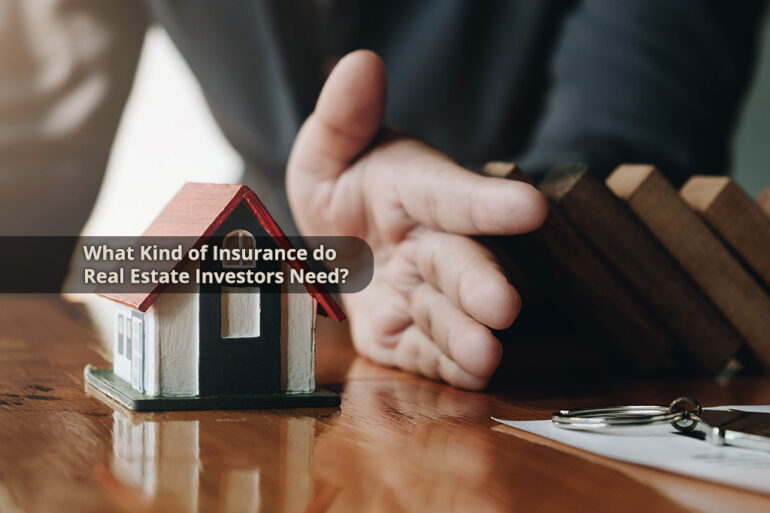What Kind of Insurance Do Real Estate Investors Need?
There are many types of properties for real estate investors to deal in. Foreclosure properties have their own unique risks. However, foreclosures can be a great investment strategy if you know where to look and how to handle them, which includes choosing the right insurance for your property.
Foreclosures in Florida
As of the third quarter of this year, foreclosures are on the rise, according to ATTOM Solutions. With the foreclosure moratorium lifted, this part of the market is kicking into gear; even with the current seller’s market, more upcoming opportunities for investors are projected.
Even before COVID-19 hit, there was already a rise in foreclosures within Florida. It is the state with the most second and third homes, which many owners are barely able to afford.
Florida has long been a tourist destination for both Americans and international guests. Tourism is the lifeblood of many communities within the state. When the influx of visitors slowed, that meant many residents could not pay their rent or mortgage.
As an investor, all this spells a rise in future market potential. Depending on the condition of the foreclosures you’re looking to buy, there are a few different types of insurance you may want to consider purchasing before or after you buy your foreclosure.
Blanket Insurance Policy
This is a type of insurance that can cover multiple properties, including structures and belongings within. It typically costs more than regular homeowner’s insurance, but as an investor, it can be well worth the money.
If you buy a blanket insurance policy, you can cover all the properties that you currently own and rent as well as future ones. This could save you from a ton of headaches and stress later down the road. You won’t need to search for a different policy for each property.
Most serious investors have a blanket policy of some sort, and if you have multiple flip projects per year as well as some rentals, you should talk to your agent about this. Having a blanket policy simplifies your insurance and gives you the overall protection you need as a real estate investor.
Landlord/Real Estate Investor Insurance
This covers a broad range of at-risk categories. Typically, landlord/real estate investor insurance includes hazard, loss of income, and liability insurance. While this is helpful as an investor to have all your bases covered, if you are simply flipping a foreclosure, you won’t be interested in covering lost rent.
If you choose this route, you will want to get covered and have it in place by closing.
Hazard Insurance
This is a must for any type of property. It is basic coverage for any structural damage caused by theft, fires, or storms. If you get nothing else, you want to have this. There’s no predicting the future! If the roof of your investment is broken by a fallen branch in a storm, you’ll be kicking yourself for not being insured.
Again, this is something that you want in place from the get-go. It is also insurance that you could include in a blanket policy.
Sewer Backup Insurance
A troubling prospect, but it does happen. If there is an issue with pipes or backup into the property, not only will you need to get that fixed, but you will also need to repair anything that is damaged in the process.
This can be pricey, and water damage can lead to other issues as well (such as mold) that will take even more out of your profits. If this is a concern for your property, get sewer backup insurance before closing so that you are covered if anything happens in the process of reselling your foreclosure. Once again, you could add this to blanket coverage.
Flood Insurance
If your property is within a floodplain, this coverage could be very useful. Most hazard insurance won’t cover floods or any water damage that comes from outside the home like hurricanes.
This search tool created by the Federal Emergency Management Agency (FEMA) is one way to check if your property is at risk of flooding. If this is a concern for your property, you want flood insurance in place from day one. Also, you could add this to a custom blanket insurance policy.
Liability Insurance
This is a standard form of insurance coverage that you’ll want to invest in. Many foreclosed properties have damage, such as rotting floorboards or loose roof tiles, that may cause accidents for anyone who stumbles upon it.
Liability insurance will cover you if there are any injuries on your property and protect you from costly lawsuits. Before beginning any work on your foreclosure, you want this coverage in place. Most standard policies will have an option to include liability insurance for an additional cost.
Builder’s Risk Insurance
Depending on the condition of your foreclosed properties, you may need to make some improvements. If you are going to hire contractors to help with the work, then this insurance is non-negotiable.
Construction and renovation offer a lot of opportunities for injury, and standard liability coverage will not apply to contractors working on the property. It’s a very specific category and could come in handy if, say, a loose beam falls on one of your contractors.
Definitely get this insurance before beginning any work on the property.
General Contractor Insurance
Just like builder’s risk insurance above, general contractor insurance covers the same array of situations. However, the key difference is that you are taking on the role and responsibility of the general contractor yourself.
Title Insurance
When purchasing your property, you may wonder if there are any liens or back taxes hiding in the woodwork. Purchasing title insurance can put those worries to rest. However, it is not always necessary or required.
Title insurance is unavailable when buying a foreclosed property. However, after you satisfy all liens, you can get a quiet title once you own the property yourself.
Policies
Although there are many categories of coverage to choose from, you may be limited in who will insure your foreclosed property and how much they will cover.
Often, insurance companies balk at distressed properties, especially in regard to roof damage, missing hand railings, siding problems, and poorly maintained paint. It can also be difficult to get good coverage for properties with outdated electrical and plumbing.
All these issues point to neglect of home maintenance and potentially costly issues down the line.
You may only be eligible for an Actual Cash Value policy, which equals the amount you paid for the property after subtracting the value of the land it is on.
One of the easiest ways to get the coverage you need is to go with a customized blanket insurance policy that can cover all your at-risk areas. Whether that’s flood, hazard, or builder’s, you want to be insured before you are in a situation when you need to draw on that insurance. An injured worker is far more difficult to deal with the day before your insurance is active.
If your policies aren’t in place the day you take over ownership, get them in order before work begins to play it safe.
Calculated Risk
As with every investment, foreclosures and the insurance you choose are a calculated risk. You may get flood insurance but turn the property around before storm season, so you never need to make any claims.
However, you may opt out of liability insurance and then a delivery person falls through the porch and sprains their ankle.
You know your plan for how long it will take you to turn around and sell the property, so ultimately your insurance is up to you. Hopefully this guide provides some insight into how to protect yourself and maximize your profits in your next investment.








